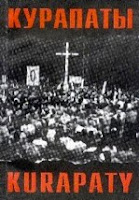
Getting Home
After the shock of being stuck in Belarus began to sink into my mind, I knew I would have to figure out a way to get myself home.
I wallowed a bit in mild self-pity, looking through the tiny photo album I had with me of shots of home, family, friends, and pets. I was supposed to be seeing them at that very moment, not just staring wistfully at representations of them. It was tough.
Max and Alecia’s family had a rickety rotary phone in their apartment that intermittently allowed you to call out of the country and even overseas. Max told me I should call my family so they would know I wasn’t coming home. I didn’t have any money to reimburse them for the call but they didn’t seem to mind and I was too desperate to think much about it.
I excitedly called Pennsylvania and my dad picked up. His voice sounded thrilled to catch me on the other end. He exclaimed, “Oh, are you in Ireland now?” Our original flight plan included a few hours’ layover in Shannon.
“No,” I countered gravely to my father’s natural assumption. “I’m still here in Belarus ...”
You can imagine where the conversation went from there. My father was shocked and panicked. He asked me for the number at the apartment and said he’d work on seeing what he could do on his end and give me a call back the next morning. He told me to hang in there and he’d get me home.
The days that I stayed behind in Belarus, in an anxiety-filled limbo, took on their own form and are blurred in my mind. This was all ten years ago, mind you.
I can, however, provide you with an impression of those ten days. Max and I stomped around the city, trying to get the paperwork I needed to leave the country. We failed in almost all of our endeavors. At one point, however, we somehow got me a 24-hour exit visa.
Excitedly, Max investigated what flights were leaving Minsk in the ensuing 24 hours. There was one to Beijing and one to Moscow. I think that was all. Max was about to book me the flight to Beijing as, in a moment of desperation, I had told him I wanted to just get the hell out of Belarus, no matter where.
I know, I know what you’re thinking: What was so horrible in Belarus that I was rude and so intent on leaving as soon as I possibly could? Was I being tortured or abused? No. Was there food? Was I eating? Yea, there was a little bit of food; I was eating but not much.
For their family of four (all adults) plus me, there were four red-skinned boiled potatoes and slivers of black bread for supper. We topped this off with some weak chai [tea]. I couldn’t supplement their food budget and thus, ate sparingly.
No, things were not so bad (despite hunger constantly murmuring in my belly) and, in a very real way, I feel ashamed, looking back, at my desperation to leave. But, after a month there, the delay, a year in Spain, etc., I was very ready to go home, savor the remaining days of summer break, and start my last year at UPenn so to go on to bigger and better, a.k.a. “real life.”
As Max interpreted my frustration literally, I almost had a one-way ticket to Beijing until I figured out what was going on and told him I was speaking in hyperbole and truly only really wanted to go West. Drop me in Switzerland or Germany or Italy, I pleaded, but not any farther east.
After foregoing the flight to Beijing, we found out there was a train leaving that night to Warsaw. It would cross the Belarussian – Polish border at 11:45 pm. My 24-hour exit visa, of course, would expire that night at midnight.
To travel from Minsk to Warsaw by train, the rail cars must switch chassis as the rail lines in Belarus and those in Poland are of a different gauge. My luck, I anticipated, would be to encounter a delay at the border and get stuck, once again with an expired exit visa without the compassion of Max and Alecia’s family or the luck of meeting their somewhat shady cousin at the airport.
With all this in mind, I passed on the train to Poland and decided we should try to get a visa with a larger exit window so I would have more choice in how I would leave the country.
Relatively early on in this quest, Max and I went to the U.S. embassy, seeking their help. It was an ordeal for us to even enter the embassy, with my U.S. passport in hand. The first five or six people I ran into as we tried to gain access to the embassy did not speak English and when Max spoke to them in Belarussian, trying to explain our predicament, they responded arrogantly in Russian.
Finally, we were permitted into the embassy and I spotted an American-looking woman behind a plexi-glass shielded counter.
She was on the phone as we approached. She glanced. A broad smile emerged on her lips. She exclaimed, “Are you Meg?”
Wow, I thought. “Yes, I am. How do you know that?” I fired back.
“Because I’m on the phone with your dad at this very moment,” she replied.
My father and I had reached the same woman, Pat, simultaneously. She was pretty high up in the embassy hierarchy and seemed genuinely concerned about my predicament.
She instructed me, however, that although she could offer me a place to stay and some money for food, she could do very little to help me get an exit visa. I had, she digressed, after all, broken Belarussian law. When in a foreign land, a traveler is subject to the laws of that country.
I told Pat I had not intended to break the law and had done so accidentally. She nodded and replied that she knew that and so did the Belarussian government but laws are laws.
Defeated, Max and I sulked out of the embassy, back to the subway, back to the bleak suburbs and the family’s concrete-block apartment. Block after block of these Soviet-era buildings house most of Minsk. They’re hard to differentiate. I noticed the same structures (I say “structures” as I find it hard to refer to such constructed spaces as “architecture” because they lack any sort of artistry or beauty of any kind) when I moved to the dilapidated Tashkent suburb of Sergali when in Uzbekistan for the Peace Corps.
In fact, one evening (pardon my digression to Central Asia), I headed back to my new family’s flat in Sergali and huffed and puffed up five flights before I realized I was in the wrong building all together. I could only differentiate my new flat from all the other concrete monsters jammed together by the graffiti at the very top of the stairwell; that’s a long way to go to make sure you’re in the right building.
But, back to Belarus: I knew it was best to stay with Max and Alecia’s family, despite the lack of food and tight quarters. They cared for me as if I was a member of their family. I didn’t want to be put up in a random flat in Minsk by the embassy as little as I wanted to try my luck at crossing the Belarussian – Polish border fifteen strokes to midnight.
The days passed. I shared the one bed with Alecia while Max and his parents slept on the living room floor. They insisted that this be the arrangement. I spent hours in a marshy park near the apartment. Jogging and walking and staring into the still water.
Finally, one Saturday morning, Max’s mother, the pediatrician and also a member of the local government, took us to the magistrate’s office.
After waiting awhile in a dim hallway as people churned in and out of his office, we were summoned in. Max’s mom gestured that I follow her and Max tugged my arm and whispered “Look sad!” into my cheek.
Once inside the high-ceiling yet drab office, Max’s mother spoke excitedly, with passion. The official looked me up and down and said something directed to me that sounded a lot like “scientist.” Max’s mom looked to me, as if instructing me to agree, to which I nodded.
Max told me later that the official was asking if I was a scientist, trying to discern why I was in his country. A scientist? A scientist! I guess I was in a way but I was really just a child, a student, a punk kid. But, things in the former Soviet Union take on such Orwellian nonsense that it all made sense.
The official issued me a puke green sheet of paper and a tubby woman stamped my passport. I had an exit visa for the next week. A week! Seven full days!
Max, his mom, and I kept our utter joy deep in our pockets until we had exited the building and disappeared from the official’s view behind a lush evergreen.
Then, we turned to each other and grinned like Cheshire cats, elated.
In the days that followed, we were able to get me back on that same flight from Minsk to Shannon I was booked on three weeks prior.
The evening before I left (for the second time), about a dozen of people I met while in Minsk, friends of Max and Alecia and their folks, and archaeologists who were on the dig with us in Snydin, came to the apartment to wish me well.
We drank sweet orange soda and munched beet salads and salty breads. It was a feast. We listened to the Beatles and chuckled late into the night.
The next morning, Max accompanied me to the airport. He stood close behind me as I waited my turn to approach customs. We weren’t going to take any risks this time.
I was nervous, so afraid the stamp and the green sheet of paper wouldn’t suffice or would have somehow become bad or maybe I was blacklisted or, using anachronistic post-9/11 terminology, I was on a “no-fly” list because of my prior visa transgression.
After a short wait, I was summoned by the customs official, a clean-shaven handsome youngster with wide-set amethyst eyes who inspected my papers, glanced askew at my face, and motioned me through. I was in and leaving Max. He looked happy for me but it was a bittersweet moment for both of us.
In him, his family, and circle of friends, I had been blessed with an inherently good group of people. They looked out for me as though they had known me and my family our entire lives. They knew me just over a month but took me easily into their care.
They had little but shared everything. They embraced me like a sister, a daughter, a true friend. To this day, I warmly remember their affection and love. I think that in a country as difficult as Belarus, such connections and community must be how people get by.
I once asked Max why he and his family don’t leave Belarus. He said it’s precisely because things are so bad that they must stay and do their damnedest to make things better.
As a family of intellectuals, they would have freedom and affluence if they could relocate to Western Europe or the United States. But they won’t and I admire their conviction to honor their country by staying and working each day to speak their own language and not Russian, the language of the conqueror; to speak up and stand for education and free speech and openness even as such courageous acts condemn them to slivers of black bread and tepid tea.


Comments